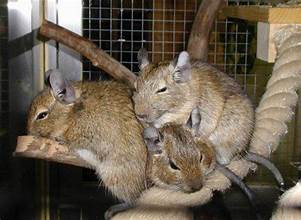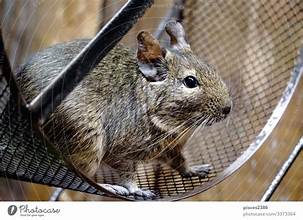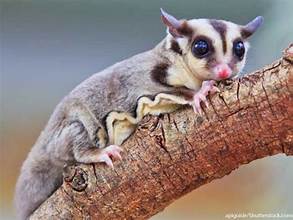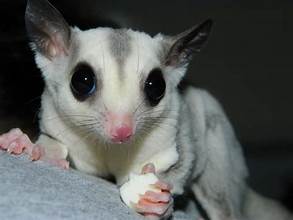Degus are captivating small pets that combine rodents’ charm with larger animals’ intelligence. Native to Chile, these friendly creatures thrive in groups and are perfect for pet enthusiasts looking for an interactive and unique companion.
What is a Degu?
Degus are medium-sized rodents closely related to chinchillas and guinea pigs. They are known for their lively personalities, curious nature, and intricate social behaviors. In the wild, they live in caves and are highly social, making them excellent pets for families and individuals.

Physical Characteristics
- Size: 9–12 inches long (including tail).
- Weight: 6–10 ounces.
- Lifespan: 5–8 years with proper care
- Appearance: Brownish fur, large round ears, and a long tail with a tuft of fur at the end.
Degu Temperament
Degus are known for their social, playful, and intelligent personalities. They are naturally curious and enjoy exploring their surroundings. While gentle, they do best with consistent handling to build trust.
- Social Needs:
Degus thrives in groups. Keeping them alone can lead to loneliness and depression.
- Interactive:
They love engaging with their owners, often learning tricks or responding to their names.
Caring for a Degu
Housing and Habitat
Degus needs a spacious, enriching environment to thrive:
- Cage Size:
A multi-level wire cage with a solid base; minimum dimensions of 24 x 18 x 24 inches for a pair.
- Bedding:
Dust-free and absorbent bedding, such as aspen or paper-based options. Avoid cedar or pine.
- Enrichment:
Include platforms, tunnels, hideouts, and wheels (solid surfaces to avoid injuries).

- Temperature:
Keep their environment between 65–75°F, avoiding high humidity or drafts.
Diet and Nutrition
Degus have a sensitive digestive system and a unique dietary need:
- Staple Foods:
High-quality hay (like timothy or orchard grass) and degu-specific pellets.
- Treats:
Limited leafy greens, herbs, or vegetables (e.g., dandelion greens, carrot tops).
- Avoid:
Sugary foods, fruit, and human snacks, as they are prone to diabetes.
Exercise and Play
Degus are energetic and require daily activity:
- Running Wheel:
A large wheel (at least 12 inches) with a solid surface.
- Out-of-Cage Time:
Supervised playtime in a degu-proofed room.
- Toys:
Chew toys, wooden blocks, and puzzle feeders keep them entertained and prevent boredom.
Grooming and Hygiene
Degus are low-maintenance but need access to dust baths:
- Dust Baths:
Provide a bowl of chinchilla dust 2–3 times per week to help keep their fur clean.
- Claw Trimming:
Occasionally trim their nails if they become overgrown.
Health Concerns
While generally hardy, degus can face specific health issues:
- Diabetes:
Avoid sugary foods to reduce the risk.
- Dental Issues:
Provide chew toys and hay to keep teeth from overgrowing.
- Respiratory Problems:
Keep their habitat clean and dust-free to prevent infections.
Regular veterinary checkups are essential, especially with exotic animal specialists.
Is a Degu the Right Pet for You?
Degus are perfect for owners who:
- Can commit to caring for multiple degus (they need companionship).
- Have the time to interact and bond with their pets daily.
- Are willing to provide a stimulating environment and proper diet.
Conclusion
Degus are delightful pets that bring joy and entertainment to their owners. Their intelligence, social nature, and playful personalities make them a unique addition to any household. With proper care, a group of degus can offer years of companionship and fun.




